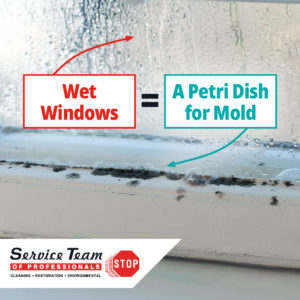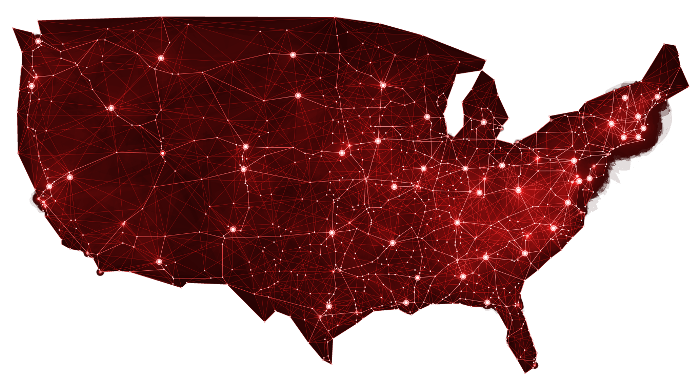
Condensation can result in mold
Mold is thought to be a seasonal problem for homes but it is actually a year-round problem that plagues homes everywhere. This is especially true in the wet winter season, when there is melting snow, warm indoor temperatures, and high humidity. Homes are most likely to get infiltrated by this hazardous fungus around this time. Moisture in your home can begin to condense when in touch with a cold wall. The walls closest to the outside of your home can be prone to mold growth due to their proximity to moisture and the warm temperature inside.
Tips to Prevent Mold Growth
Mold growth is detrimental to the structural well-being of your house. Mold can feed on the wood and building materials inside your walls and floors, forcing you to make expensive replacements. Mold is attracted to warm places with high humidity. Some of the ways you can prevent mold growth in the winter season are:
Ensure Good Air Circulation
Good air circulation in your home can ensure that the moisture in your house is circulated throughout the house. While washing dishes, showering, or cooking, you should turn on an exhaust fan or open a window to circulate air. This way, moisture will not gather on your cold wall and seep in to promote mold growth in the winter season.
Repair Leaks Quickly
If your roof is leaking or a pipe has cracked due to the cold, you should get it repaired immediately. Leaking water can increase humidity around the area encouraging mold growth to occur.
Proper Insulation
It is important to get your pipes, attic, and walls insulated against the cold in the winter season. Melting snow can seep into your attic, and the warmth from your house can promote the moisture to promote mold growth.
Encapsulate Your Crawlspace
The crawlspace is the small space under your floor and above the building ground. It is the place meant for circulating air through the floorboards of your home. Crawlspaces can be a place with high moisture due to the presence of soil and vents leading outdoors. If crawlspaces are not properly insulated with polyethylene plastic, they can acquire mold growth and even spread it to other parts of your home.
Use a Dehumidifier
Basements, attics, and crawlspaces are the most vulnerable places to mold. To avoid mold growth effectively, you should use a dehumidifier for these places to draw out any excess moisture present in the air. Dehumidifiers can keep out the musty smell of damp and keep mold-prone areas of your home dry.
See Signs of Mold Growth? Contact Us Now!
Even after following all the necessary precautions, mold growth can find its way into your home. If you notice a musty smell in your attic or can see visible signs of mold under your sink, you should contact a professional mold remediation and removal company ASAP. STOP Restoration of Spokane has the most advanced tools at their disposal to restore your home from any mold growth damage. Call us now at 509-818-7744 for the best mold growth remediation services.
For further details, please visit our website or send us a message here.


